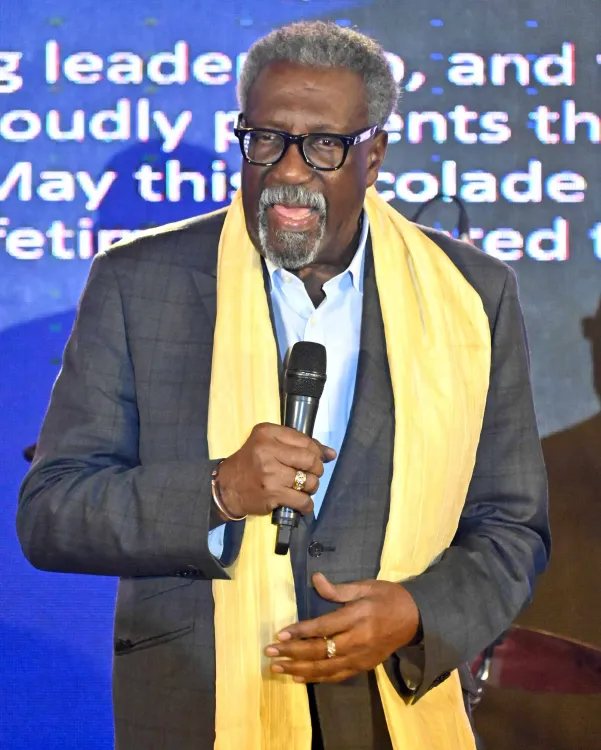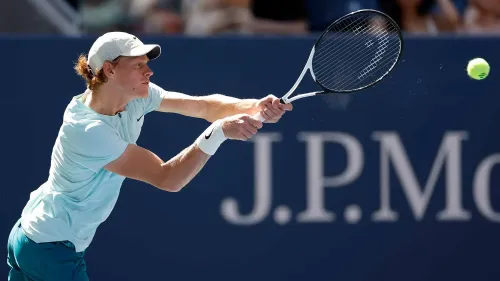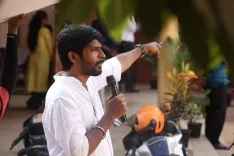Clive Lloyd Expresses Concerns Over Proposed Two-Tier Test Cricket System

New Delhi, Jan 7 (NationPress) Renowned West Indies cricket captain Sir Clive Lloyd expressed significant concern regarding the suggested two-tier Test cricket system, labeling it as an unfavorable concept.
As reported by The Sydney Morning Herald, the chair of Cricket Australia, Mike Baird, Richard Thompson of the England and Wales Cricket Board, along with representatives from the BCCI, are scheduled to meet with ICC Chairman Jay Shah later this month to deliberate on the potential implementation of a two-tier Test structure starting in 2027.
"I genuinely don’t foresee a two-tier system coming to fruition. I find this quite troubling and am hopeful that action is taken to prevent it now. We aren’t discussing 30 or 40 cricket teams - it’s merely ten teams. We should ensure that every team has the opportunity to play cricket frequently,” Lloyd stated.
"Test cricket remains one of the most cherished formats within the sport. However, we appear to be sidelining it, which I believe is quite detrimental. A more effective system is necessary. We must collaborate to devise a better approach rather than merely proclaiming T20 as the dominant format."
“Not everyone prefers T20 cricket - there is a demand for Test cricket, as T20 serves as an exhibition, while Test cricket is a thorough evaluation. The distinction between a Test cricketer and a top-tier cricketer is evident through Test cricket,” Lloyd remarked in response to inquiries from IANS during a selected virtual session.
Additionally, there is a risk of an increasing disparity between the leading and lower-ranked Test teams, along with second-tier teams facing financial hardships if they don’t compete against top division teams, particularly the major three: India, Australia, and England.
"The implications would hinder our ability to cultivate the level of cricket we have historically produced, as we would be relegated to a second tier. Improvement comes from facing stronger opponents; competing solely amongst ourselves in a lower league will impede our progress.
"It would be disastrous for those nations that have strived diligently to achieve Test match status, now relegated to competing among themselves at a lower tier, with relegation and promotion systems complicating matters. How can they ascend to the top? A more equitable approach would involve providing teams with equal financial support to enhance their development,” Lloyd added, who led the West Indies to victory in the ODI World Cups of 1975 and 1979.
The suggestion for a two-tier Test cricket structure emerged in 2016, but faced opposition from several cricket boards, including the BCCI, preventing its realization. If ratified, the proposed system would allow England, India, and Australia to compete against each other twice over three years instead of four, thereby maximizing their television rights revenue.
From 1982 to 1984, Lloyd captained the West Indies in an extraordinary run of 27 Tests without a defeat and secured 11 consecutive wins. However, the advent of a two-tier Test system could diminish the West Indies' chances of competing against top nations in Test matches.
Lloyd, who has served as an ICC Match Referee and as chairman of its Cricket Committee, emphasized that it is the duty of the global cricket organization to ensure the financial sustainability of Test matches in the Caribbean, highlighting the region's challenges in revenue generation.
"I am immensely disappointed. The fact is that other countries have exerted considerable effort to reach this level. We have been part of the ICC for nearly a century and are one of the most successful Test teams historically. Reflecting on our dominance in the 1950s, we worked diligently for our achievements, despite a population of just five billion, while nations like Pakistan, India, Sri Lanka, and South Africa have larger populations.
"We possess a rich history, and now we're being told that because of financial constraints, this is the new reality. The T20 leagues have disrupted our cricket, particularly since we hail from a small cricketing nation where a significant loss of players to financial offers is concerning.
"Consider our accomplishments; organizing tournaments is challenging due to our geography - we’re comprised of 14 islands. Travel incurs high costs, particularly during peak hotel pricing periods, making financial sustainability a struggle. We require special consideration because of our island status. Imagining the dismantling of the West Indies teams to compete independently is troubling.
"We cannot maintain this system with our current financial resources. Historically, we've supported many countries financially. We are not requesting anything unwarranted. In the 1970s, we bolstered English cricket by participating in county competitions, leading to their upliftment. Currently, we find ourselves in need of assistance, yet it remains elusive. Hence, I advocate for special support measures. We must address this situation to aid our cricket and other nations similarly situated,” Lloyd concluded.








